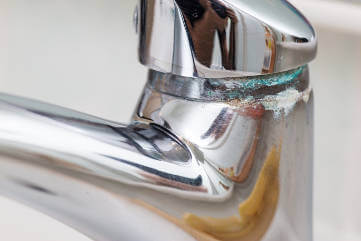 It is inevitable that at some point in the life of your home’s plumbing, something will go wrong. Natural wear and tear, regular use, temperature fluctuations, and changes in pressure all conspire to put pressure on our plumbing systems. The trick is to be alert to any changes and to regularly check and deal with any problems as soon as you spot them. Fixing a minor leak now could save you a whole lot of trouble and money if you don’t let it get worse and cause far more damage than it might have done otherwise. Let’s take a look at where things could go wrong and how to check for and avoid potential problems.
It is inevitable that at some point in the life of your home’s plumbing, something will go wrong. Natural wear and tear, regular use, temperature fluctuations, and changes in pressure all conspire to put pressure on our plumbing systems. The trick is to be alert to any changes and to regularly check and deal with any problems as soon as you spot them. Fixing a minor leak now could save you a whole lot of trouble and money if you don’t let it get worse and cause far more damage than it might have done otherwise. Let’s take a look at where things could go wrong and how to check for and avoid potential problems.
Most common problems
Leaks can occur around taps, pipes, cisterns, and radiators. Leaky taps in the bathroom or kitchen can usually be fixed fairly easily – they are likely the result of a worn-out washer. Occasionally though they could be from a worn-out pipe or the tap fixture itself, perhaps a build-up of limescale has created problems or an old metal pipe has corroded over time. Around the toilet cistern, the mechanism may have failed leading to an overflow or it may be blocked stopping water from draining away. When it comes to heating systems, you could have pipes that are blocked with sludge, a build-up of air in the closed system, or the valves or coupling system may have come loose.
What to look out for
Keep an eye out for any of the following and do a thorough check on a regular basis for our own peace of mind:
- Look for leaky taps or dripping pipes. Check for moisture around pipes to catch any potential problems as soon as they happen.
- Inspect your shower tray or bath for water that may be escaping through other than the drain itself. This could be into cracks in the wall or seeping through breaks in the sealant.
- Look at the floors around toilets, showers, and baths. Is there any staining or sponginess to the floor? If there is, then you have water collecting below the floor which will need to be removed, dried out, and repaired.
- Take a look at the walls in your bathroom and around your kitchen sink. Is there any discolouration or staining? Has any part of the wall warped? These could be evidence of a leak behind the wall and will need to be repaired immediately, before things get any worse.
- Inspect the sealant around all walls and floors at least once a year for cracks, gaps, or moulding. Replace it straight away if you spot any problems and aim to strip, clean, and replace fully every few years.
- Check your shut-off valves frequently to make sure they are not damaged. As your first line of defence against a major leak, you need to be able to rely on them doing what they are meant to do!
- Unblock your drains and pipes regularly to avoid a build-up of limescale. Fit a plug guard or plug protector to prevent material going down the drain and potentially getting stuck in your pipes leading to problems later on.
For advice and help with any leaks around the home, talk to our Platinum Plumbers team without delay. Remember, dealing with a small problem now will prevent it from becoming a major one and will save you money. You can get hold of us on the phone on 020 8855 0361 or by emailing us on .

